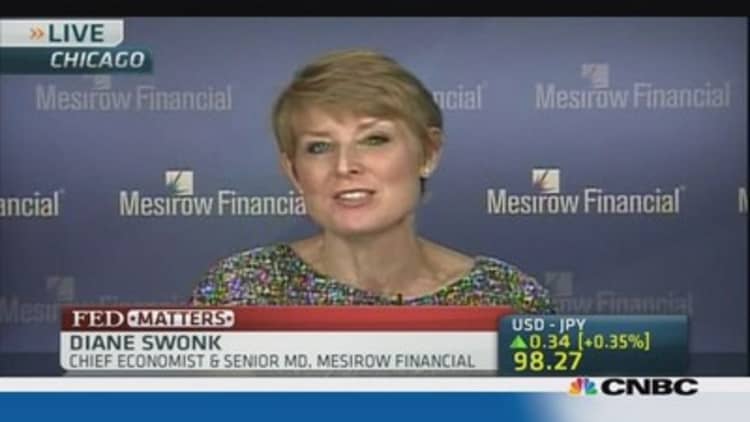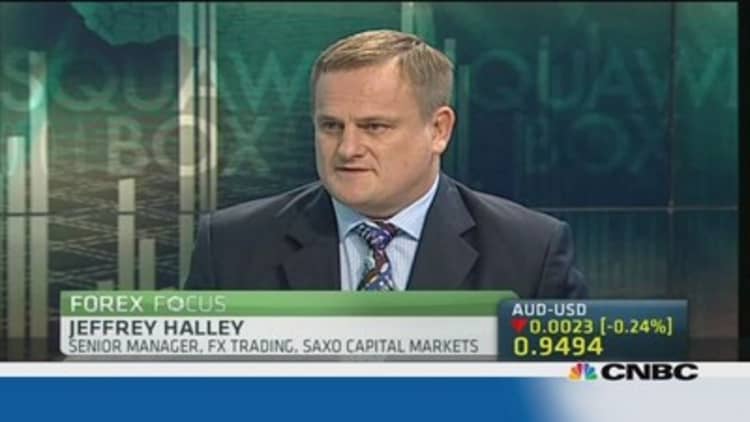Asian equity markets enjoyed a risk-on rally on Thursday after the Federal Reserve defied expectations by keeping its $85 billion-a-month bond-buying program intact.
Emerging markets led the gains with Indonesia's Jakarta Composite up 4.5 percent following an earlier 7 percent surge, Philippine's PSE Composite rose 3 percent and Indian stocks added over 2 percent.
Elsewhere, Australian equities climbed to a new five-year high and Japan's index hit a two-month high. But trading volumes were light with Shanghai and South Korean markets shut for public holidays.
(Read more: Let's party!Emerging markets cheer as Fed stays pat)
Fed's taper surprise
Concluding a two-day policy meeting, the Federal Reserve shocked markets by announcing that it would continue buying bonds at the current rate of $85-billion a month for now, surprising traders who were expecting a $10-$15 billion reduction in purchases.

"We are tied to the data, we don't have a fixed calendar schedule but we do have a basic framework that I described in June. The criteria for ending the asset purchase program is a substantial improvement in the labor market," said Bernanke. "Conditions in the job market are far from what we'd like to see," he added.
On Wall Street, both the Dow and hit record highs, while the yield on the benchmark 10-year note slid to its lowest level in over a month at 2.76 percent.
Emerging markets rally
Stocks in the Philippines and Malaysia rose to one-month highs each, Jakarta's benchmark index hit a two-month high and India's benchmark climbed to its highest level since January 2011.
In the currency space, the Philippine peso, Thai bhat and Malaysian ringgit all hit two-month highs each while rose to a one-month high.
(Read more: No Fed taper brings back talk of currency war)
"This kind of lucky break on the liquidity side does not remove any challenges ahead for emerging markets. They need to use the time to slim down, cut credit growth and budget deficits," Andy Xie, independent economist told CNBC.
Nikkei 1.8% higher
Japan's benchmark index rose to its highest level since July 25 as investors cheered news that August exports rose at their fastest pace in three years. But the nation still posted a trade deficit for the fourteenth straight month.

Metal stocks led the gains with Pacific Metals higher by 8 percent and Sumitomo Metal Mining up 6.5 percent after copper prices hit a three-week high.
Automakers also lent support with Suzuki Motor, Isuzu Motors, and Hino Motorshigher by over 5 percent each. Still, the pace of gains was capped as the yen traded near a three-week high of 97.76 per dollar.
Investors are awaiting a speech by Bank of Japan governor Haruhiko Kuroda later in the day for clues on the direction of monetary policy.
"The market is viewing the fact that the Japanese is going to be the first one to try and offset any kind of U.S expansion of QE with one of their own and that's why dollar-yen isn't buckling as much as the other currencies," said Boris Schlossberg, managing director at BK Asset Management.
Sydney up 1.1%
Australia's resource-heavy index hit its highest levels since June 2008 thanks to strong gains in gold miners following higher bullion prices.
Spot gold approached a one-week high, triggering a 22 percent increase in Perseus Mining, an 18 percent rise in Medusa Mining and a 16 percent gain in Kingsgate Consolidated.
Struggling surf-wear retailer Billabong climbed 5.5 percent after signing a refinancing deal with U.S. hedge funds Oaktree Capital Management and Centerbridge Returns.
— By CNBC.com's Nyshka Chandran. Follow her on Twitter @NyshkaCNBC

